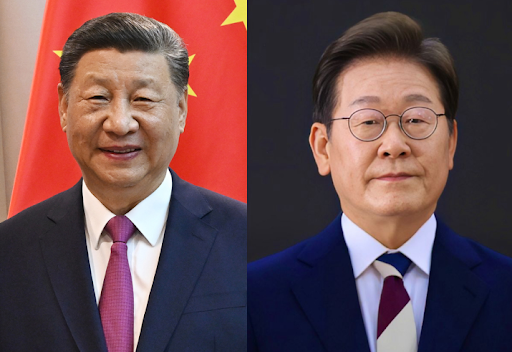President Lee Jae Myung walked a diplomatic tightrope as he hosted Chinese President Xi Jinping, with the event highlighting the extreme pressures on South Korea. Caught between its U.S. security alliance and its Chinese economic lifeline, Seoul’s government is also facing growing anger from its own public.
The tension was palpable on the streets of Seoul, where hundreds of protesters rallied against Xi’s visit and China’s influence. This public dissent is a significant challenge for President Lee, who has been criticized for attempting to crack down on such demonstrations in an effort to appease Beijing.
The summit’s agenda was dominated by the U.S.-China rivalry. Coming just after a visit from U.S. President Trump, Lee’s meeting with Xi forced him to address multiple points of friction. He raised the 2017 THAAD missile system dispute, a U.S.-led initiative that remains a major sore point for China. He also brought up Chinese sanctions against a U.S.-linked firm, underscoring Seoul’s position as a man-in-the-middle.
Lee’s attempt to carve out his own diplomatic win by focusing on North Korea backfired. He urged Xi to help restart dialogue with Pyongyang, a key priority for Seoul. However, North Korea immediately rejected the overture as a “pipe dream,” a sharp public rebuke that undermined Lee’s efforts.
While the political discussions were fraught, the economic talks were more productive. Chinese state media focused on this, announcing seven new economic agreements, including a currency swap. President Xi’s call for “mutual respect” was a clear, if diplomatic, warning to Seoul to manage its U.S. alliance, leaving Lee to continue his perilous balancing act.


